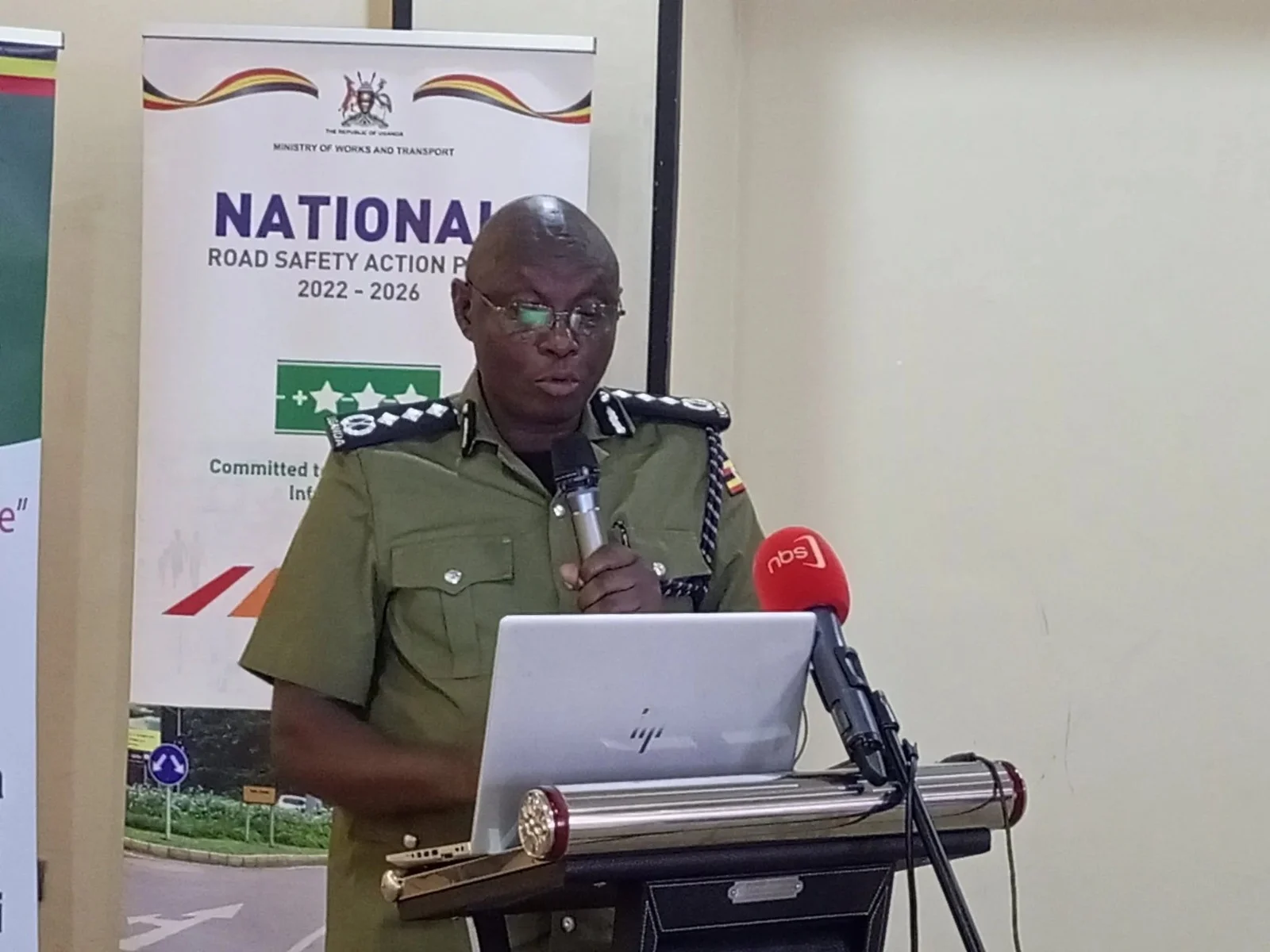Traffic Police Halts Express Fines to Allow Driver Education on New Road Laws

The Directorate of Traffic and Road Safety has temporarily suspended the issuance of fines under new traffic regulations, citing the need to educate motorists before full enforcement resumes.
The announcement was made by Assistant Inspector General of Police (AIGP) Lawrence Nuwabiine, the director of Traffic Police, following widespread complaints from the public about being fined without adequate knowledge of the new provisions.
The laws, which took effect on May 20, 2025, introduce significantly harsher penalties for traffic violations and reduce the grace period for fine payments.
“We have listened to the public concerns,” said Nuwabiine. “Many drivers are not yet aware of what the law now requires of them, and it would be unfair to continue penalising them without sufficient sensitisation. That is why enforcement of fines has been halted temporarily to allow for a national education campaign.”
Under the revised Express Penalty Scheme (EPS), motorists are now required to pay fines within 72 hours, down from the 28-day period stipulated in the 2004 traffic law.
Failure to pay within the new window attracts a 50% increment in the fine, adding urgency to compliance.
The new measures, part of broader reforms aimed at improving road safety and accountability, target key areas such as drunk driving, over-speeding, and use of unlicensed or uninsured vehicles.
Drivers caught exceeding speed limits by 1 to 30kmh are liable to a fine of Shs200,000, while those surpassing the limit by more than 30kmh face fines of Shs600,000.
Operating an uninsured or unlicensed vehicle now attracts fines between Shs200,000 and Shs600,000 or imprisonment of up to two years.
For drunk driving, offenders face a Shs500,000 fine, a mandatory court appearance, and potential suspension of their driving licences.
The penalties escalate further for careless or reckless driving, with fines ranging from Shs1.2 million to Shs1.8 million or imprisonment of two to three years.
Despite the good intentions behind the law, many road users have expressed confusion and frustration, particularly about the reduced payment window and the scope of offences covered under the revised regulations.
“The law came into force suddenly. I was fined last week for not renewing my insurance, yet I wasn’t even aware that the penalties had changed,” said James Tumwine, a taxi driver in Kampala. “They should have educated us first.”
In response to such concerns, AIGP Nuwabiine confirmed that the temporary suspension would be used to conduct a nationwide public awareness campaign, spearheaded by the Traffic Directorate in partnership with other government agencies.
“There will be community engagements, radio talk shows, social media messaging, and printed materials distributed in all regions,” he said.
“This is not just about punishing motorists. It’s about promoting a culture of safe and responsible road use.”
The Uganda Police Force has recently ramped up enforcement efforts amid a spike in road accidents and fatalities, particularly involving motorcycles and minibuses.
Authorities believe that tighter penalties, if well understood and fairly implemented, could deter habitual offenders and save lives.
While no specific date has been set for when enforcement will resume, the traffic police have assured the public that they will give sufficient notice and ensure that drivers are well-informed.
The suspension offers a brief reprieve for motorists, but officials are urging drivers not to become complacent.
“Even with the temporary halt in fines, the law is in effect. Motorists must still follow traffic rules to avoid accidents and future penalties,” AIGP Nuwabiine cautioned.
The decision is a welcome to many motorists as several clauses in the new law that had been quiet for decades were suddenly activated by Traffic Police last week, with motorists finding themselves paying for fines they did not see coming.
For instance, Laban Mujuni Mboneizina was issued a Shs40,000 EPS ticket for a seemingly trivial offence: not carrying a copy of his vehicle’s registration book, commonly known as a logbook.
According to Section 146(2) and (5) of Uganda’s Traffic and Road Safety Act (Cap. 361), as amended in 2020, any person driving a motor vehicle, trailer, or engineering plant on a public road must have in their possession a copy of the vehicle’s registration book.
The implementation of the new traffic regime marks one of the most sweeping changes in Uganda’s road safety framework in two decades.
Authorities say its success will depend not only on strict enforcement but also on public understanding and cooperation.



0 Comments